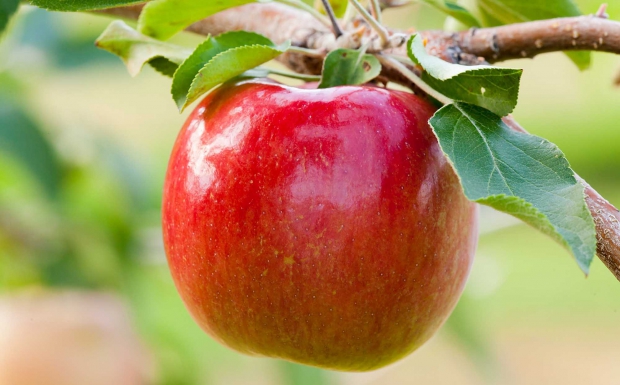Romans 3:18 Therefore, as one trespass led to condemnation for all men, so one act of righteousness leads to justification and life for all men.
It was only one piece of fruit. One time. “How bad could that be?” asks all of humanity. Well, it was an act of rebellion that led to the condemnation of all men. If I would deny God a central attribute of holiness, I would certainly insist on the primacy of my own ethics, rules and perspectives. If God does not conform to my compromises and indulge my pleasurable tastes, however they progress and escalate, then I want nothing to do with that God. For it is not only one piece of fruit. It is an endless orgy of fruit, and one that I delight in discovering, uncovering and feasting on, my mouth dripping with juice.
Why does this condemn? Isn’t fruit good? If I entertain there is a Creator, wasn’t it then created for my enjoyment? What kind of spoil-sport God would show me a tree and its fruit then deny its consumption?

The kind of God whose limits and boundaries are for my good, not my harm. The kind of God who desires my trust through obedience.
It is a chief fault of mine if I fail to see the reason in this verse. I made choices. They were NOT good, no matter how I revel in them and point to other factors in making them. And Holy God does not endorse rebellion or rebels like me. I have separated myself deliberately, even exuberantly. God finds me hiding behind a tree in the garden and I decide to miss out on the most pleasurable walk in the company of One so intimate and loving. I leave behind the most precious time I have ever known and could ever know, in the cool of the day with God. Oh, what I’ve traded for my indulgence!
It was only one man, perhaps erroneously killed by oppressive authorities who were jealous of his persuasion over the people. That injustice was scarcely unique, and is not unique to this day. Yet the dying man had said prior that his death was voluntary, that there is no greater love than someone who dies for his friends. He called himself the Good Shepherd and his sheep were people. He taught denial and lived it and died it. His proposition was that in giving up his life he was purchasing mine. And even in that, granting me the volition to say yes or no to him.
That “one act of righteousness” speaks through time. Hallelujah! God did not leave me this way. Blood drips from the veins of the crucified One, not any man but the dying Messiah. The pleasure fruit and its effects die with him, along with the shame that I bore and curse I swore.
My rebellion is justified, paid for and I am reconciled to take that walk through the garden in the cool of the day again. My obedience doesn’t come at once, salvation is progressive and my depravity deep and pervasive. Yet his cleansing deeper still.
My life is his; there is no one else.